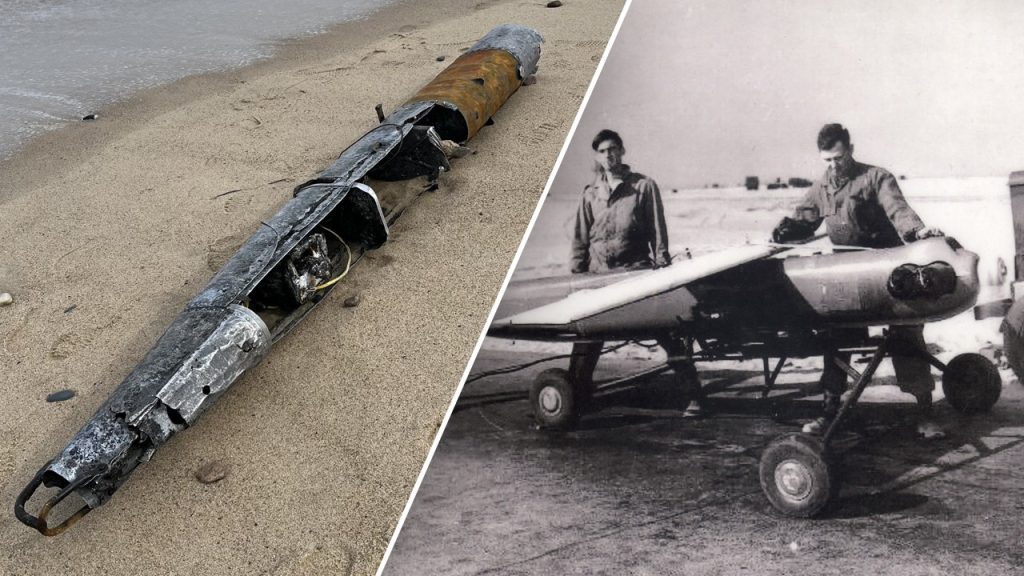Officials on Cape Cod have reportedly solved a piece of history after a mysterious object dating back to the Cold War was found on Marconi Beach in Massachusetts. The artifact, resembling an aircraft fuselage, was discovered in early April and staff at the beach worked together to remove it before it was swept away by an incoming storm. After examining the relic, park historian Bill Burke determined that it was the fuselage of a Remote Control Aerial Target (RCAT) used for target practice for anti-aircraft training off Marconi during the 1940s and 50s.
The RCAT drones were once used at an informal training camp that few knew about. Aircraft equipped with an RCAT would take off from a defunct runway located in the woods of Wellfleet, and the RCAT would be rocket-launched off the aircraft and controlled remotely from the bluff. This program was considered state-of-the-art and top secret, providing essential training to anti-aircraft gunners throughout the country before engaging in war. Despite being primitive compared to modern flight simulators, the Camp Wellfleet RCAT program was highly advanced for its time.
The discovery of the RCAT on Marconi Beach has shed light on a little-known aspect of Cold War history and adds to the historical significance of the area. National Park Services officials have not disclosed any plans for the recovered RCAT, leaving its final destination up in the air. The artifact serves as a reminder of the technological advancements and secrecy surrounding military training programs during the Cold War era.
The identification of the RCAT fuselage as part of a top-secret Cold War program highlights the importance of historical artifacts in understanding the past. The diligent efforts of Cape Cod National Seashore staff in identifying and preserving the relic have brought a piece of hidden history to light, offering valuable insights into the military training techniques of the mid-20th century. By sharing this discovery with the public, officials have sparked interest in the unique role that Marconi Beach played in the development of anti-aircraft tactics during the Cold War.
The remote location of the former Camp Wellfleet and the top-secret nature of the RCAT program have added an air of intrigue to the discovery of the fuselage on Marconi Beach. The artifact stands as a tangible reminder of a bygone era when military technology was advancing rapidly and national security concerns were paramount. Its discovery and subsequent identification have opened a window into the past, allowing for a better understanding of the challenges and innovations faced by military personnel during the Cold War.
As efforts to preserve and protect historical artifacts like the RCAT fuselage continue, the significance of these relics in telling the story of our shared past becomes increasingly apparent. The unexpected discovery on Marconi Beach has sparked curiosity and excitement among those interested in Cold War history and military technology. By uncovering and unraveling the mysteries surrounding such artifacts, we gain a deeper appreciation for the sacrifices and advancements made by previous generations in the name of national defense and security.


